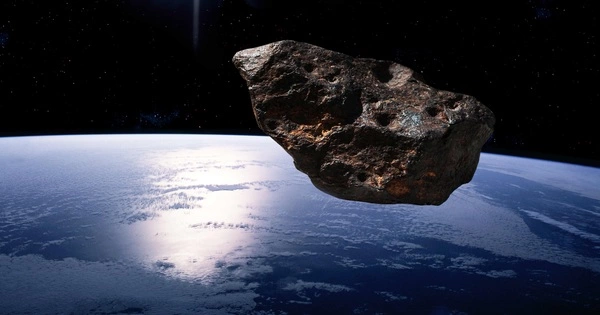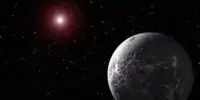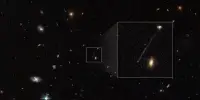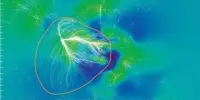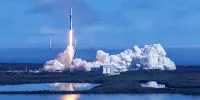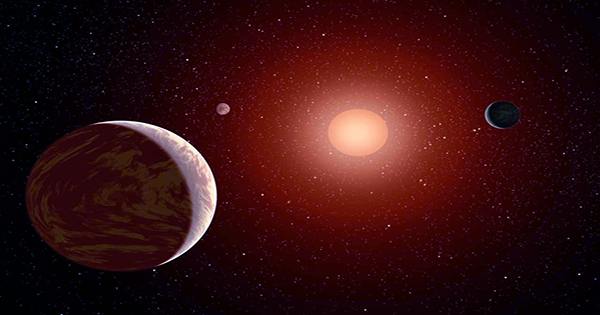According to a study, the first mining experiments conducted in space could pave the way for new technologies to aid humans in exploring and establishing settlements on distant worlds. Astronauts on the International Space Station conducted tests that indicate bacteria can extract useful materials from rocks on Mars and the Moon.
The findings could aid efforts to develop methods of obtaining metals and minerals required for space survival, such as iron and magnesium. Researchers believe bacteria could one day be used to break down rocks into soil for crop cultivation or to provide minerals for life support systems that produce air and water.
Over a 10-year period, scientists at the University of Edinburgh’s UK Centre for Astrobiology created matchbox-sized mining devices known as biomining reactors. Eighteen of the devices were delivered to the space station, which orbits the Earth at an altitude of about 250 miles, aboard a SpaceX rocket launched in July 2019 from Cape Canaveral in Florida, US.
Each device was loaded with small pieces of basalt, a common rock on the Moon and Mars, and submerged in bacterial solution. The three-week experiment was carried out in zero gravity to simulate environments on Mars and the Moon.
Our experiments lend support to the scientific and technical feasibility of biologically enhanced elemental mining across the Solar System. While mining these elements in space and bringing them back to Earth is not economically feasible, space biomining could potentially support a self-sustaining human presence in space.
Professor Charles Cockell
According to the team’s findings, bacteria could increase the removal of rare earth elements from basalt in lunar and Martian landscapes by up to 400%. Rare earth elements are widely used in various technologies such as mobile phones, computers, and magnets.
Microbes are also routinely used on Earth in the process of biomining, which extracts economically valuable elements such as copper and gold from rocks. According to the researchers, the new experiments have also provided new data on how gravity influences the growth of microbe communities on Earth.
The research, which was published in the journal Nature Communications, was funded by the UK Space Agency and the European Space Agency. The Science and Technology Facilities Council, which is part of UK Research and Innovation, funded the study. Kayser Italia designed and built the miniature mining reactors used in the experiment.

“Our experiments lend support to the scientific and technical feasibility of biologically enhanced elemental mining across the Solar System,” said project leader Professor Charles Cockell of the University of Edinburgh’s School of Physics and Astronomy. While mining these elements in space and bringing them back to Earth is not economically feasible, space biomining could potentially support a self-sustaining human presence in space.
“For example, our findings suggest that building robotic and human-tended mines in the Moon’s Oceanus Procellarum region, which has rocks with enriched concentrations of rare earth elements, could be one fruitful direction of human scientific and economic development beyond Earth.”
Dr Rosa Santomartino, a postdoctoral researcher in the University’s School of Physics and Astronomy who worked on the project, stated: “Microorganisms are extremely adaptable, and as we travel into space, they can be used to perform a wide range of tasks. One of them could be elemental mining.”
“It is wonderful to see the scientific findings of BioRock published,” said Libby Jackson, Human Exploration Programme Manager at the UK Space Agency. Experiments like this demonstrate how the United Kingdom, through the United Kingdom Space Agency, is playing a critical role in the European Space Agency’s exploration program. Findings from experiments like BioRock will not only aid in the development of technology that will allow humans to further explore our Solar System, but will also assist scientists from a variety of disciplines in gaining knowledge that will benefit all of us on Earth.”
“Whether you’re building a settlement on asteroids, the Moon, or Mars, you’re going to need elements to build your civilisation,” said Prof Charles Cockell of the UK Centre for Astrobiology at the University of Edinburgh. “What our BioRock experiment has shown is that bio-mining is just one method of extracting useful elements from rocks to support a long-term human presence beyond the Earth.”
